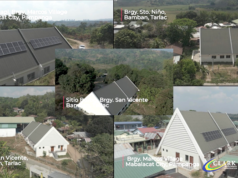IQOS from PMI is the most popular heated tobacco product in the world today. The system heats instead of burning the tobacco thus eliminating toxic smoke.
Philip Morris International Inc. (PMI) published recently its firstintegrated report, a comprehensive overview of the company’s environmental, social, and governance (ESG) performance and its progress toward delivering a smoke-free future—including the company’s ambition to switch more than 40 million adult smokers to its smoke-free products by 2025.
PMI’s Integrated Report 2019 demonstrated the role of the organization’s strategy, governance, and performance in the creation of value over the short, medium, and long terms. Further, the report showed PMI’s approach and important progress in various ESG areas, while setting new and ambitious targets for 2025 that complement the company’s prior aspirations.
“Clarity of purpose is essential for the internal alignment of any company. Since we announced our smoke-free commitment in 2016, we have made enormous progress in terms of organizational capabilities, the integration of sustainability into every aspect of our transformation, and our business,” André Calantzopoulos, Chief Executive Officer, PMI said.
“PMI’s Statement of Purpose reaffirms our commitment to deliver a smoke-free future for the benefit of people who would otherwise continue to smoke and, hence, to global public health. It is clear to all of us at PMI that the biggest positive impact our company can have on society is to replace cigarettes with less harmful alternatives; this is at the very core of our corporate strategy and sits atop our sustainability priorities while we are progressing well on all others,” he added.
The report cited PMI’s Philippine affiliate, PMFTC Inc., for its strong commitment to the development and growth of local communities. In particular, the company’s corporate social responsibility program Embrace, which involves charitable giving, social contributions and community investments that focused on access to education, women empowerment, economic opportunity, and most especially disaster preparedness and relief efforts.
“As a leader in the tobacco industry and a top taxpayer in the Philippines, PMFTC has a responsible role to play in spurring economic development, empowering communities and sustaining our environment,” PMFTC President Denis Gorkun said.

“We are proud of our company’s caring and giving culture. We are equally proud of our employees who champion the values of social responsibility as can be most recently seen in our societal response to the COVID-19 pandemic,” Gorkun added.
In the report, PMFTC was cited as being in the forefront in providing relief assistance during disasters like earthquakes, volcanic eruptions, typhoons and floods. More than 25,000 individuals received help in the past earthquake incidences in Batanes and Mindanao; and another 7,384 families benefited from relief items during the Taal volcano eruption in January this year.
In these community efforts, “PMFTC employees were at the core of relief operations.” mentioning the company employees “spirit of volunteerism and compassion for the community.”
On top of helping communities, PMFTC has placed the safety and protection of its own employees a priority. Some 150 displaced employees were provided immediate assistance in the recent Taal volcano eruption.
The Integrated Report 2019 demonstrates how PMI is focusing its resources on developing, scientifically substantiating, and responsibly commercializing smoke-free products that are a better choice than continued smoking, with the aim of completely replacing cigarettes as soon as possible. The company believes that, with the right regulatory encouragement and support from civil society, cigarette sales can end within 10 to 15 years in many countries.
In 2016, PMI introduced a set of Key Performance Indicators (KPIs), referred to as Business Transformation Metrics, to transparently measure and verify its progress toward a world without cigarettes. In 2019, PMIcontinued to expand this set of metrics.
Among the highlights of the report include:





